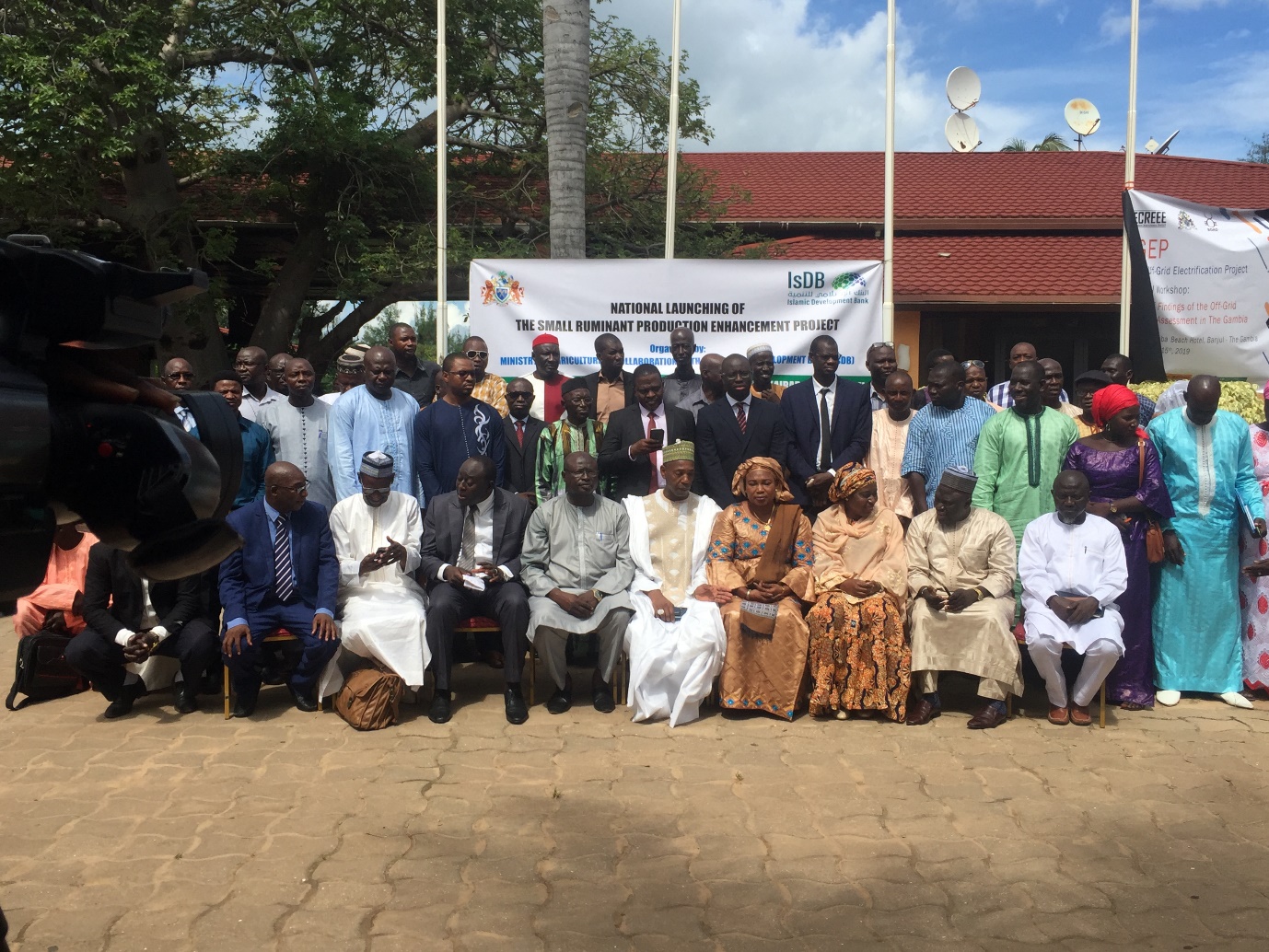By Mariama Njie
The Ministry of Agriculture in collaboration with the Islamic Development Bank (IDB) launched the Small Ruminant Production Enhancement project(SRPEP) on behalf of the Government of the Gambia at Kairaba Hotel.
The Development Objectives of this launching is to contribute to the improvement of the livelihood of pastoral communities in the Gambia by strengthening the productivity and resilience of rural communities, stimulating business entrepreneurship in the livestock sector.
Speaking at the occasion, Hon. Amie Fabureh minister of Agriculture, said the livestock sub-sector is critical and vital for the overall economic growth of the country, and meeting its food security goals.
‘’Most of the livestock producers live in the rural areas rearing mainly cattle, sheep and goats under rain-fed mixed farming, traditional extensive production systems along with backyard poultry production’’, she said.
She pointed out that, the livestock sectors have potential for reducing poverty and enhancing food security, their interventions have been mostly of a technical nature, focusing on the elements of animal husbandry, feeding and disease control.
‘’The project will development peri- urban lamb fattening operation which will be based on well- designed breeding plans involving primary local/Regional breeds best fit for local ecosystem’’ she added.
According to her, the SRPEP is a four years’ project and be financed through a 2- steps financing approach which consist of four major components, namely improvement of small ruminant production, processing and marketing, access to Islamic financing and support to capacity building, master plan development for livestock value chains and project management coordination.
The total project cost is USD 26.81 million, she revealed.
She pointed out that, the project is national in both design and intent which will be implemented in 39 districts of all the regions of the country.
However, due consideration will be given to the fact that projects implementing small ruminant production related activities may be present in some of the regions to avoid unnecessary duplication effort, she said.
‘’The envisage impact of the above interventions will not only strengthen the livestock sector in the Gambia but will reduce poverty and hunger for hundreds of thousands of rural households relying mainly on livestock for sustaining their livelihood’’ she revealed





